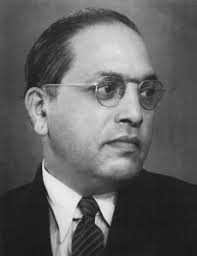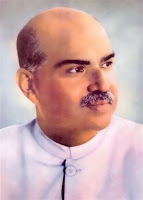Uniform Civil Code : Dr Ambedkar in Constituent Assembly
23 Nov 1948 Constituent
Assembly Debates
Dr Ambedkar:
Therefore, the argument whether we should
attempt such a thing seems to me somewhat misplaced for the simple reason that
we have, as a matter of fact, covered the whole lot of the field which
is covered by a uniform Civil Code in this country. It is therefore too late now to ask the question whether we could do it. As I say, we have already done
it.
Therefore, the argument whether we should
attempt such a thing seems to me somewhat misplaced for the simple reason that
we have, as a matter of fact, covered the whole lot of the field which
is covered by a uniform Civil Code in this country. It is therefore too late
now to ask the question whether we could do it. As I say, we have already done
it.
Coming to the
amendments, there are only two observations which I would like to make. My
first observation would be to state that members who put forth these amendments
say that the Muslim personal law, so far as this country was concerned, was
immutable and uniform through the whole of India. Now I wish to challenge that
statement. I think most of my friends who have spoken on this amendment have
quite forgotten that up to 1935 the North-West Frontier Province was not
subject to the Shariat Law. It followed the Hindu Law in the matter of
succession and in other matters, so much so that it was in 1939 that the
Central Legislature had to come into the field and to abrogate the application
of the Hindu Law to the Muslims of the North-West Frontier Province and to
apply the Shariat Law to them. That is not all. My
honourable friends have forgotten, that, apart from the North-West Frontier
Province, up till 1937 in the rest of India, in various parts, such as the
United Provinces, the Central Provinces and Bombay, the Muslims to a large
extent were governed by the Hindu Law in the matter of succession. In order to
bring them on the plane of uniformity with regard to the other Muslims who
observed the Shariat Law, the Legislature had to intervene in 1937 and to pass
an enactment applying the Shariat Law to the rest of India.
I am also
informed by my friend, Shri Karunakara Menon, that in North Malabar the Marumakkathayam
Law applied to all--not only to Hindus but also to Muslims. It is to be
remembered that the Marumakkathayam Law is a Matriarchal form of law and not a
Patriarchal form of law.
The Mussulmans, therefore, in North
Malabar were up to now following the Marumakkathyam law. It is therefore no
use making a categorical statement that the Muslim law has been an immutable
law which they have been following from ancient times. That law as such was
not applicable in certain parts and it has been made applicable ten years ago.
Therefore if it was found necessary that for the purpose of evolving a single
civil code applicable to all citizens irrespective of their religion, certain portions
of the Hindus law, not because they were contained in Hindu law but because
they were found to be the most suitable, were incorporated into the new civil
code projected by article 35, I am quite certain that it would not be open to
any Muslim to say that the framers of the civil code had done great
violence to the sentiments of the Muslim community.
My second observation is to give
them an assurance. I quite realise their feelings in the matter, but I think
they have read rather too much into article 35, which merely proposes that the
State shall endeavour to secure a civil code for the citizens of the country.
It does not say that after the Code is framed the State shall enforce it upon
all citizens merely because they are citizens. It is perfectly possible that
the future parliament may make a provision by way of making a beginning that
the Code shall apply only to those who make a declaration that they are
prepared to be bound by it, so that in the initial stage the application of the
Code may be purely voluntary. Parliament may feel the ground by some such
method. This is not a novel method. It was adopted in the Shariat Act of
1937 when it was applied to territories other than the North-West Frontier
Province. The law said that here is a Shariat law which should be applied to
Mussulmans provided a Mussulman who wanted that he should be bound by the
Shariat Act should go to an officer of the state, make a declaration that he is
willing to be bound by it, and after he has made that declaration the law will
bind him and his successors. It would be perfectly possible for parliament to
introduce a provision of that sort; so that the fear which my friends have
expressed here will be altogether nullified. I therefore submit that there is no
substance in these amendments and I oppose them.




Comments
Post a Comment